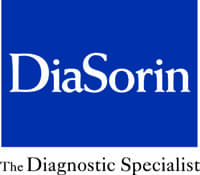In a peer-reviewed paper published in the February 2009 issue of the journal Human Mutation, a team at Weill Cornell Medical College New York describes in detail the key advantages of using Transgenomic’s Surveyor Nuclease technology for mutation scanning of PKD1 and PKD2, two important genes used in the diagnosis and prognosis of autosomal dominant polycystic kidney disease (ADPKD).
The assay showed 100% concordance with the current standard, DNA sequencing, but decreased sequencing requirements by 80%, significantly reducing analysis time and cost.
"This paper is further validation of scanning technology based upon Surveyor Nuclease and the WAVE System." said Dr Eric Kaldjian, CSO for Transgenomic. "Scanning to identify presence of mutations limits the amount of DNA sequencing required, since it is only necessary for confirmation of identified mutations. This rationale provides a logical and cost-effective improvement to the workflow for analyzing large genes such as PKD1 and PKD2, which Hanna Rennert’s team demonstrated elegantly in their paper."
"We have been able to make effective use of Transgenomic’s DNA analysis technologies to develop a screening assay for PKD1 and PKD2 that is comparable in sensitivity and specificity to DNA sequencing" said Dr Hanna Rennert, Assistant Professor of Pathology and Laboratory Medicine at Weill Cornell Medical College. "Moreover, the Surveyor assay is highly sensitive, enabling it to detect heterozygous changes not readily detected by sequencing. Indeed we were even able to establish that some samples incorrectly scored as homozygous mutations by DNA sequencing were shown by Surveyor Nuclease to be heterozygous."
ADPKD occurs at a rate of 1/1000 in the US population, affecting 500,000 people in the US and, worldwide, about 10 million. It is the most commonly inherited kidney disease. In 85% of ADPKD cases, the disease is caused by altered polycystin proteins, encoded by the PKD1 and PKD2 genes. As diagnosis in young people can be ambiguous, genetic analysis gives a strong indication of disease prognosis. Current analysis by DNA sequencing alone is very complex and expensive due to the size of the genes and the variety of mutations involved.
Transgenomic CEO Craig Tuttle said: "The WAVE System continues to prove to be an important platform in genetic analysis throughout the world. With the added functionality that Surveyor Nuclease brings in combination with the WAVE platform we are continuing to strengthen our position in high sensitivity genetic analysis. Important publications such as this validate the research and development that we have invested in these technologies."
Source: Transgenomic Inc



